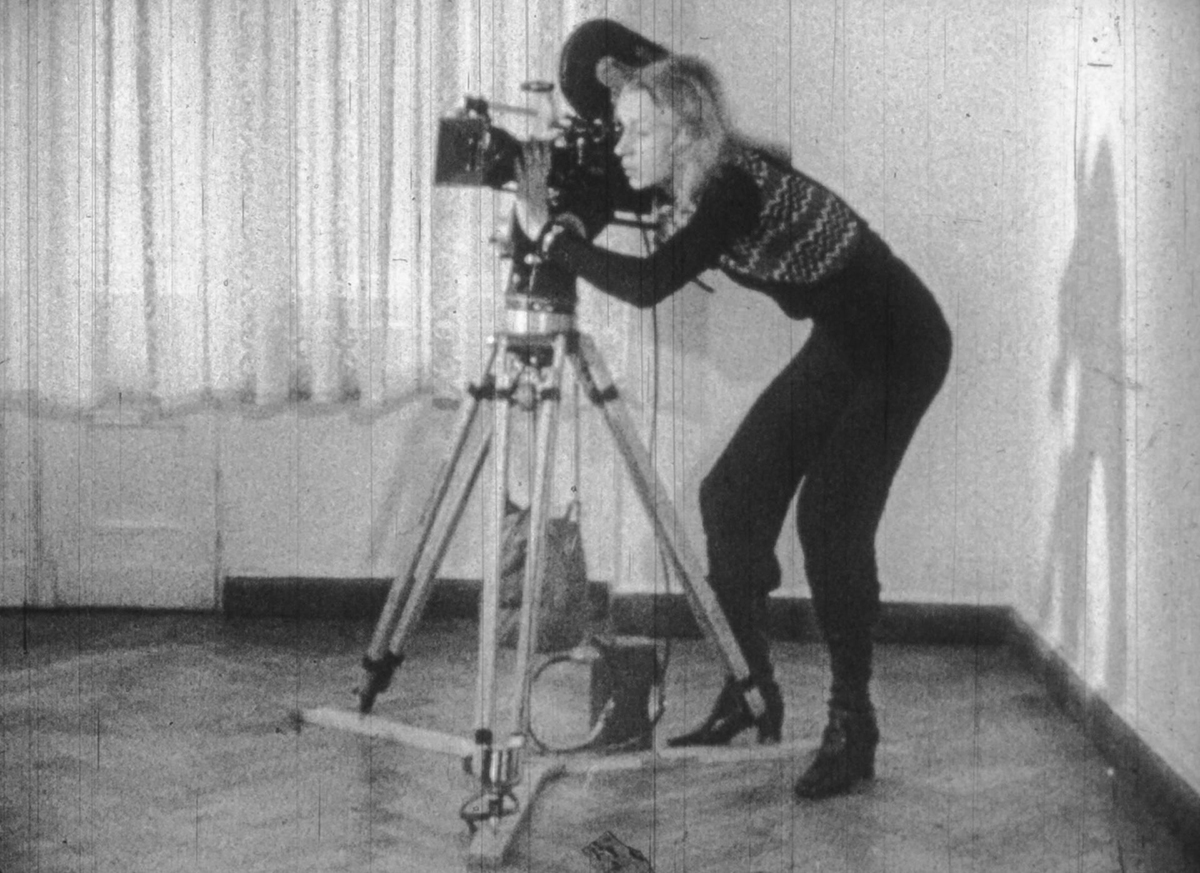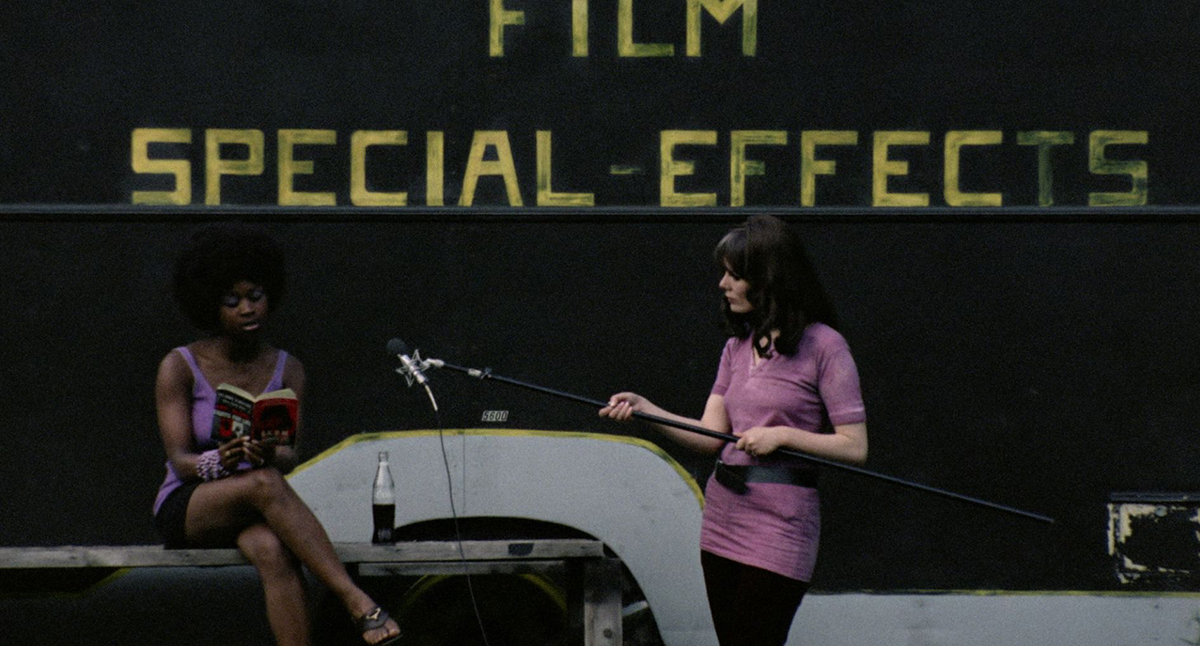Women’s Camera / Dark Spring
In the presence of Ingemo Engström
Courtisane is een platform voor film en audiovisuele kunsten. In de vorm van een jaarlijks festival, filmvertoningen, gesprekken en publicaties onderzoeken we de relaties tussen beeld en wereld, esthetiek en politiek, experiment en engagement.
Courtisane is a platform for film and audiovisual arts. Through a yearly festival, film screenings, talks and publications, we research the relations between image and world, aesthetics and politics, experiment and engagement.
In the presence of Ingemo Engström

Made by five students at the recently established DFFB (Deutsche Film- und Fernsehakademie Berlin), Women’s Camera serves as an instruction film about how to use an Arriflex 16BL camera. According to Deppe and Oppermann, “Experience teaches that when male students are in the majority (e.g., in a foundation course), the female students are held down. As a consequence, we female DFFB students decided to combine our interests and form our own founda- tion course group.” Filming stereotypical women’s work, the group make feminist critique whilst offering practical advice for filmmaking. The film was subsequently shown in classes to later generations of students at the DFFB.

Ingemo Engström’s debut was made as a graduation film from Hochschule für Fernsehen und Film in Munich where she had studied since 1967. The film is structured around a road trip taken by a recently divorced doctor as she visits her female friends, driven by her mute lover. Conversations around life circumstances and meditations on the ideal love structure the film. Katrin Seybold, a documentary filmmaker, talks about the politics of relationships; actor Edda Köchl discusses collective living, and Marxist educator Illona Schult about raising children in a commune.
“A film about women’s utopias of love. What it shows is how a woman experiences a sense of déjà-vu when she is at the end of a fifixed relationship and the start of a utopian one. Encounters with other women are also shown, who reflflect on their own relationships and on other possible forms of being together. Their testimonies remain authentic even when placed in a context that draws on staging.” (Ingemo Engström)